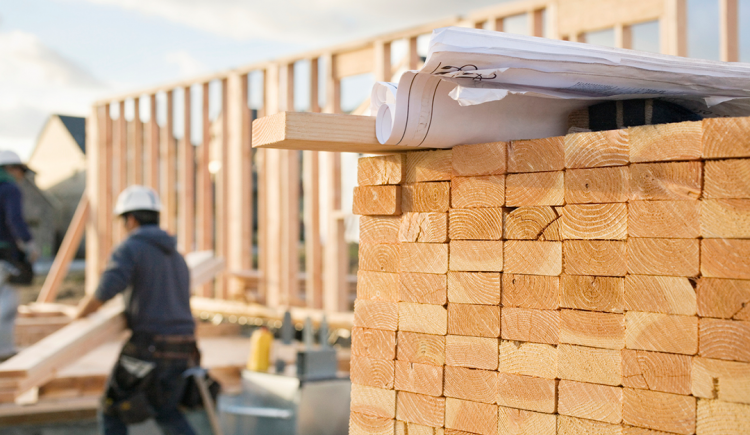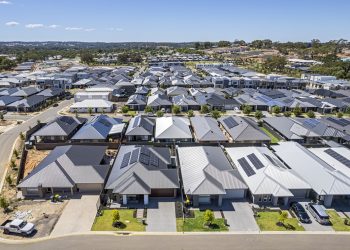(TNS)—Home prices are soaring, pushed higher by a combination of record-low mortgage rates, strong demand from buyers and a lingering lack of new construction.
In 2021, a new factor put pressure on home prices: Month-after-month, lumber prices jumped to new highs. Lumber costs soared more than 30% from January through May.
However, lumber prices finally are cooling a bit as lumber mills ramp up production to meet the frenzied demand. In June, futures prices for lumber dropped below $1,000, off 45% from their springtime peak.
Even so, the National Association of Home Builders (NAHB) says steep lumber prices still tack thousands of dollars onto the cost of a new home, an unwelcome increase for buyers already struggling to find homes they can afford. The trade group has lobbied President Joe Biden and Congress to end tariffs on Canadian wood sent to the United States.
The Labor Department’s producer price index shows lumber more than doubled from May 2020 to May 2021. NAHB says the price tripled in just 12 months.
Activity on the futures markets has been even more eye-popping. The price of lumber for March delivery resembles a price chart for bitcoin or GameStop shares.
A Series of Cascading Effects
Usually, homebuyers can ignore the intricacies of lumber futures markets and trade policy with Canada. But the intensity of the price spike for wood is affecting consumers.
NAHB points to a variety of setbacks created by the lack of lumber. A builder in Georgia says he has been forced to postpone construction starts, delays that will limit housing supply going into the spring selling season.
A builder in Alabama reports that the bill for lumber used to frame a typical new home jumped from $35,000 a year ago to $71,000 now. Mirroring that observation, NAHB says soaring lumber prices caused the price of an average new single-family home to increase by $35,872 this spring compared to spring 2020.
In another wrinkle, a Kansas builder says appraisers aren’t considering lumber prices in their analysis, and therefore are undervaluing homes.
PulteGroup, one of the nation’s largest builders, says it expects to raise prices this year as it passes on the climbing cost of wood.
“Driven primarily by increases in lumber and labor, our house costs will be higher in 2021,” PulteGroup Chief Financial Officer Robert O’Shaughnessy said in a recent earnings call.
Home builders aren’t the only buyers of lumber, of course. Homeowners renovating their houses also have diverted some of the supply by building fences, decks and additions.
Lumber Is Just One Factor in Home Prices
The dramatic rise in lumber prices has grabbed headlines in recent weeks. But wood costs are just one factor in the complicated equation behind home prices.
The biggest factor is supply and demand. The U.S. population, and particularly the generational bulge of millennials entering their 30s and starting households, is growing faster than the number of homes available. That means that even as wood prices come back to earth, home prices are unlikely to follow.
“Lumber is not the main reason why homes are unaffordable,” says Alex Barron of the Housing Research Center in El Paso, Texas. “It is the lack of resale supply—too many homes are still in the hands of landlords and investors. We had no land development after the crash for over a decade.”
©2021 Bankrate.com
Distributed by Tribune Content Agency, LLC











